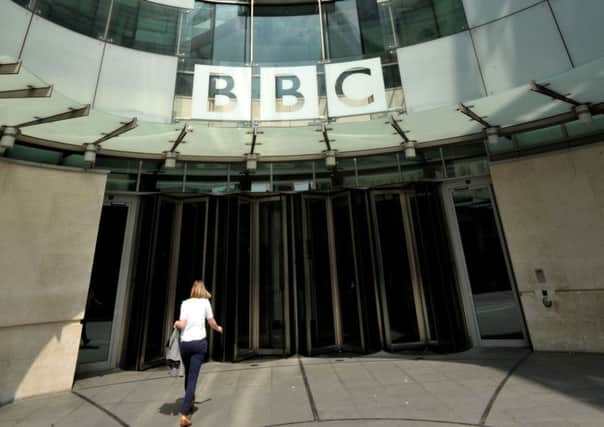Leaders: '˜Far-reaching reform' of the BBC watered down


Sifting through the BBC White Paper, it is clear that this is not the far-reaching reform that was promised.
UK Culture Secretary John Whittingdale set out plans which included naming the (very) highest earners, ending the licence fee freeze and closing the loophole around using the iPlayer catch-up service.
Advertisement
Hide AdAdvertisement
Hide AdOther changes which were hailed as significant include a change to what the BBC is asked to provide with Mr Whittingdale giving the corporation a new “mission statement” which includes serving all audiences with “impartial, high quality and distinctive media content”.
The BBC was the state-funded broadcaster that controversially brought the US animated show Family Guy to the UK, although it is now off to ITV. The show has been the subject of many complaints for indecency and inappropriate material although there is an argument it was technically quite well put together. The new “mission statement” would not prevent a similar programming decision in future.
If there were any doubts that sensible anaylsis would reflect that this white paper has missed an opportunity to make much-needed significant reforms it can be found in the BBC’s own coverage, in which their correspondent Nick Higham said in the opening paragraph of his analysis: “For an exercise billed as a far-reaching reform, what’s striking about the white paper is how little will change fundamentally.”
If any more evidence was needed BBC director general Tony Hall’s response was that the white paper was “an endorsement of the scale and scope of what the BBC does today” and “it reaffirms our mission”. So no change then.
Even the changes that are proposed are woolly. The commitment to do more to serve its nations and regions better does not look like root and branch change and there are big questions around the Scottish “sub-board” that will be set up under the new unitary board that replaces the BBC Trust.
And in probably the sole instance of bold and decisive action in the entire white paper the government got it wrong. The abolition of the BBC Trust is probably long overdue, and a unitary board is not a bad idea.
But for the government to be able to appoint up to half of the board members is a clear threat to the organisation’s independence and should be resisted. Given it receives its funding from the state it does not need any more doubts over its independence from government.
The media landscape is undergoing a transformation driven by technology that can get pictures and information to people in ways never before possible. The BBC is a large and distorting part of that landscape which has many excellent commercial participants who are also capabable of high quality and distinctive content, including news coverage, as they regularly demonstrate. Mr Whittingdale has fallen far short of the change that was expected from him, he has ducked the challenge.
World must back corruption fight
Advertisement
Hide AdAdvertisement
Hide AdThe suspension of Brazilian president Dilma Rousseff ahead of an impeachment trial for alleged budgetary violations is certainly a sad state of affairs.
Brazil’s first female president has seen her time in office dogged by corruption scandals against a backdrop of steep economic downturn.
Rousseff has now been suspended for six months for a trial over accusations of fiscal irregularities during her campaign for re-election in 2014.
She has strenuously denied any wrongdoing and insisted the move was “a coup” and “a farce”.
The timing is particularly unfortunate as the world’s attention, already piqued by concerns over the outbreak of the Zika virus, is due to fix on this summer’s Olympic Games in Rio de Janeiro. The Rio Olympics have already seen their fair share of controversy, including allegations of bribery over the award of construction contracts, AND the sporting worls is still reeling from allegations of wide-sread drug taking.
The decision to put President Rousseff on trial was should be welcomed across the world as a signal that Brazil is willing to tackle corruption at the very heart of its society.
As we all know, with the recent publication of the so-called Panama papers and Prime Minister David Cameron’s unfortunately gaffe-hit London conference the global fight against corruption has rarely been higher-profile.
Brazil must be offered our support and applauded for taking a stand against corruption when timing might have induced it to do otherwise.